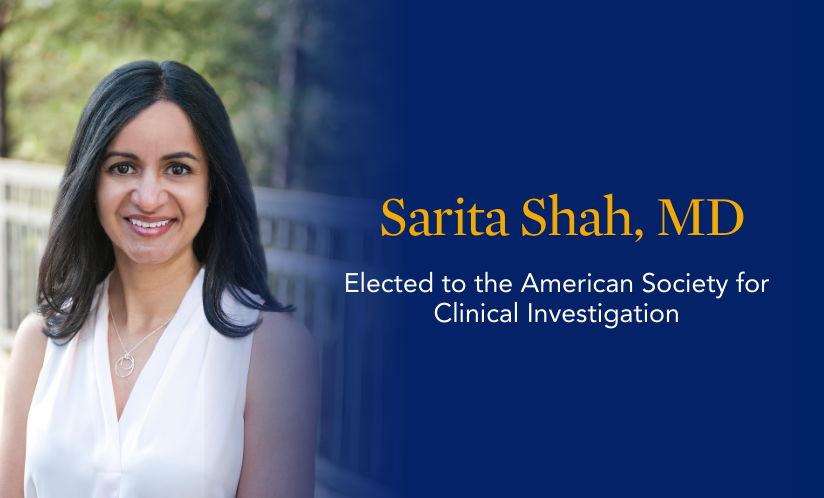Sarita Shah Elected to the American Society for Clinical Investigation

Sarita Shah, MD, professor of epidemiology and global health, was recently elected to the American Society for Clinical Investigation (ASCI), one of the country’s oldest medical honor societies. ASCI has over 3,000 members across all medical specialties, but it specifically focuses on physician-scientists and the role they play in advancing research. Shah is one of 100 new inductees into the society and is also joined by two Emory School of Medicine faculty.
After two decades of work in tuberculosis (TB) research, Shah is excited to join ASCI as one of only a handful of members in her field.
“To be elected is an incredible honor,” says Shah. “It means a lot to me, because it recognizes the work I’ve been doing to improve our prevention and care for people with TB for many years. I also hope this helps students and fellows get excited about this kind of work, and see it as an important and meaningful career path.”
Shah’s career in TB began shortly after completing her internal medicine residency, when she became an epidemic intelligence service officer at the Centers for Disease Control and Prevention working in their Division of TB Elimination. Over the years, she has used her expertise in drug-resistant TB and TB/HIV co-infection in work with Ministries of Health, the World Health Organization, The Global Fund, and the Emory/Georgia Tuberculosis Research Advancement Center, in which she co-directs the Clinical & Population Sciences Core. Working at the intersection of clinical care and public health research is important to Shah because it allows her to improve clinical care approaches and patient experiences.
“As a clinician, I could see the problems that existed, and I wanted to be able to provide solutions,” she says. “To me, the way to do that was to draw from the experiences of patients and providers, and then undertake clinically and programmatically relevant research to make it better.”
Shah hopes that through her membership in ASCI, there can be more attention on the field of TB research and the work that is being done to improve TB care worldwide.
“It’s worth emphasizing that TB is the leading infectious disease cause of death worldwide, despite tools to diagnose, cure, and prevent it,” she says. “This is an incredibly complex disease that encompasses biomedical, socio-behavioral, and political factors that have persisted for centuries. My work is just one part of this, but I hope having more visibility for TB by being elected to this organization will shine a light on the need for more research to find solutions.”